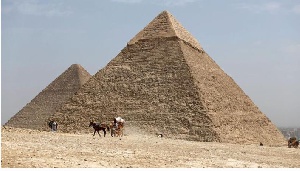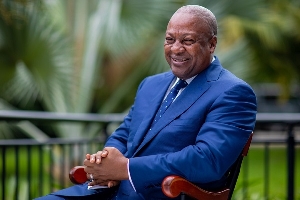Crime & Punishment of Sunday, 5 May 2024
Source: GNA
High Court dismisses interlocutory injunction application against Minerals Commission, two others
 File photo
File photo
A Tema High Court has dismissed an interlocutory injunction application brought against the Minerals Commission, the Ada District Assembly, and Electrochem Ghana Limited (EGL) by four elders of the Terkperbiawe clan of Ada over the Ada Songhor lands.
Justice Malike Awo Woanyah Dey, the presiding judge, dismissed the application, which sought an order to restrain the defendants, their agents, assigns, and privies from forcefully evicting the plaintiffs and their subjects from their land pending the final determination of the suit.
A certified true copy of the ruling, given on April 16 and available to the Ghana News Agency (GNA), noted that the plaintiffs—Nene Amatey Korley Adegu II, the Chief of Aminapah; Nene Simon Odorkorteye, Acting Chief of Puteh; Nene Nartey Tsirapah, Acting Chief of Midie; and Nomo Akunyumu Akoto, Acting Chief of Kwalakpoyom—filed the suit against the three defendants on January 17, 2024.
They sought three reliefs: an interlocutory injunction, an award of costs by the court against the defendants, and any other relief that the court may deem fit.
However, the court, in its ruling, stated, among other things, that to convince the court to grant the relief prayed for by the counsel for the plaintiffs, there must be evidence of a legal right that ought to be protected.
It added that the rights of the plaintiffs or applicants could not override the rights granted to Electrochem, which, according to the company, would bring development to the salt industry for the general good of the people.
"Thus, on this material condition of proof of a right which ought to be protected, I believe the plaintiff applicants have failed to establish that they have any legal or equitable right that ought to be protected according to law by this court," the judgment said.
It explained that considering the totality of the evidence before the court and the rights of the parties, the court found that Electrochem would suffer greater hardship if the application were granted because there was evidence that so much money had been expended even in the process of acquiring the license, coupled with the fact that it had a limited period of 15 years within which to mine the salt.
"I am also of the opinion that the community will also suffer in relation to the opportunities that the said project has in terms of development and the industrial nature of the project.
"Another point is that even if the court grants an injunction, there might be a further suspension of the legal rights of the 3rd defendant in terms of the relief endorsed on the writ, which seems to be in perpetuity. Thus, if it takes Parliament a long time to deliberate, the respondents must wait," it said.
The court stated that it believed the disadvantages that could occur if the application were granted would be enormous compared to the disadvantages if the application were refused.
Therefore, the court held the opinion that, in the circumstances of the case, it would be highly unreasonable to grant the application even in terms of the relief endorsed on the writ of summons because not even the court could tell when Parliament would finish reviewing the said agreement, "that is, even if they are doing so."
Meanwhile, the court did not award any costs against any of the parties.










